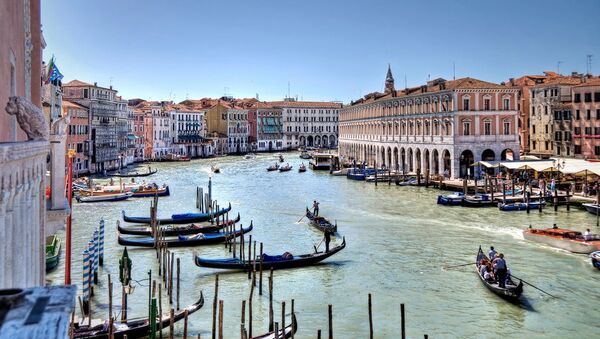If the agreement is reached, the gap between Italy's North and South would become even more evident. Being born in a particular region would mean, in other words, having more or less rights, or enjoying more or less high-quality services, ranging from health care to school education. The signing of the agreement would lead to a "secession of the rich", according to University of Bari economics professor Gianfranco Viesti.
Sputnik spoke to Viesti, author of 'Verso la secessione dei ricchi?' ('Are We Heading towards the Secession of the Rich?') to find out about the economic and political consequences of this agreement.
Sputnik: What is your book about?
This is, actually, a very important subject, but few deal with it; it would be good to present it to the public. The decisive point is that it's not about administrative or technical changes just for the citizens of those regions, it's about a very important political change that affects all Italian citizens.
Problems arise here for three reasons. The first one is related to the areas in which the regions want more autonomy — healthcare, school education and infrastructure. There would be a huge transfer of powers from the state to the regions.
The second critical issue is that of funding these powers because the initiative of the regions is born from the desire to obtain more financial resources to implement their own projects. For example, for at least 25 years Lega Nord has been trying to get as many financial resources as possible for the development of the northern regions. Evidently, this would affect the allocation of resources and therefore the quality of schooling and healthcare in other Italian regions.
READ MORE: Haters Gonna Hate: Italy's Salvini Shares PHOTO of His & Trump's VOODOO Dolls
Thirdly, the parliament is completely cut off from the discussion. I mean that the agreement that the country's government and the regions are expected to sign on 15 February is currently a secret for the parliamentarians. This agreement will be brought to parliament only to be approved or rejected.
Sputnik: What could be the negative effects of these reforms for the country?
The mayor of Milan has opposed the signing of this agreement for two key reasons. First of all, he believes that by giving more money to those who are richer we are taking it away from those who are poorer. Secondly, there's a risk that if these regions have more powers, they would be able to put pressure on the cities that are deprived of those powers.
Sputnik: Are experts, professors, economists and political scientists opposed to northern regions having greater autonomy?
Gianfranco Viesti: We launched a petition in August. Some may have joined us but as for now, I can see silence on the subject. We need a real discussion on this issue, we are talking about something that concerns not only Veneto, Lombardia and Emilia Romagna.
Sputnik: Are you opposed to regional autonomy in general? Which model should we opt for?
Gianfranco Viesti: Regional autonomy is a great thing that is already there, but here we are talking about a differentiated regional economy and some regions having more power than others. I am not against that in general, but the issue is rather delicate; we have to see how the system as a whole and its financial aspects work.
READ MORE: Poland And Italy Agree to Boost EU's External Border
In Italy, for example, we already have special regions where citizens are treated much more favorably than citizens of other regions. These are mainly small regions; but if Veneto, Lombardia and Emilia Romagna, which are very large regions, became that special, the issue would become much more important.
The views and opinions expressed by the speaker do not necessarily reflect those of Sputnik.





